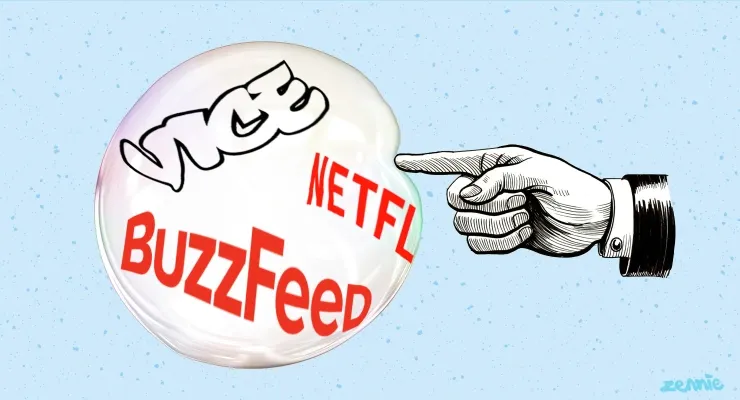The news industry has been in a state of flux for several years now, with traditional news brands grappling with the challenges of the digital age. The recent bankruptcy of once-thriving digital news giants, Vice and BuzzFeed, has brought these challenges into stark relief. At the same time, news personalities and digital creators have been making significant inroads, generating dedicated followings and reshaping the future of news dissemination.

News Brands: Traditional Gatekeepers in a Changing Landscape
News brands have long been the traditional gatekeepers of information. Outlets like The New York Times, BBC, and CNN have established their credibility over decades, sometimes centuries. However, the digital revolution has fundamentally changed how audiences consume news, posing significant challenges for these established brands.
The rise of social media platforms has not only provided an alternative source of news but also created a shift in audience expectations. Traditional news brands, accustomed to a one-way flow of information, now have to engage with audiences in a two-way conversation. Moreover, social media algorithms prioritize content that generates engagement, often favouring sensationalism over depth and accuracy.
The Fall of Vice and BuzzFeed: A Cautionary Tale
Vice and BuzzFeed, once hailed as the future of digital media, have struggled to navigate this new landscape. Their initial success was built on a mix of viral content, edgy journalism, and innovative formats that resonated with younger audiences. However, they have struggled to maintain this momentum in the face of increased competition and the shifting sands of social media algorithms.
Their decline is a stark reminder of the challenges facing news brands in the digital age. It underscores the difficulty of building a sustainable business model in an environment where ad revenue is increasingly being siphoned off by tech giants like Google and Facebook.
News Personalities and Digital Creators: A New Breed of News Disseminators
While news brands struggle, news personalities and digital creators have been thriving in this new environment. These creators, ranging from bloggers and vloggers to podcasters and influencers, have leveraged platforms like YouTube, TikTok, and Substack to build dedicated followings.
These news personalities often blur the line between journalist and influencer, offering a mix of news, opinion, and personal narrative. Their success lies in their ability to build a direct, authentic connection with their audience, something that traditional news brands often struggle with.
However, the rise of news personalities also presents its own challenges. The blending of news and opinion can lead to the spread of misinformation, and the lack of editorial oversight raises questions about accountability.
Looking Ahead: A New Paradigm for the News Industry
The fall of Vice and BuzzFeed and the rise of news personalities point to a broader shift in the news industry. News is no longer the exclusive domain of traditional news brands. Instead, it's becoming a more democratic and diverse ecosystem, where news brands and news personalities coexist and compete for audience attention.
This new paradigm presents both challenges and opportunities. For news brands, it's a call to innovate and adapt, to find ways to build authentic connections with their audience and to explore alternative revenue models. For news personalities, it's an opportunity to fill gaps left by traditional media, but also a responsibility to uphold the principles of accuracy, fairness, and accountability.
As we look to the future, the turbulent downfall of media giants like Vice and BuzzFeed signals a significant turning point in the news industry. This dramatic shift, while disconcerting, does not spell disaster but emphasizes the urgent need for evolution. The rise of independent news personalities, fueled by social media and the digital revolution, marks a fundamental transformation in how we engage with and understand news. Yet, amidst this upheaval, the core tenets of journalism - truth, accuracy, impartiality, and accountability - must remain central to any future development. Generation Z, as the digital-native generation, stand poised to be the architects of this new media landscape, armed with an inherent understanding of digital spaces and a demand for authenticity.




